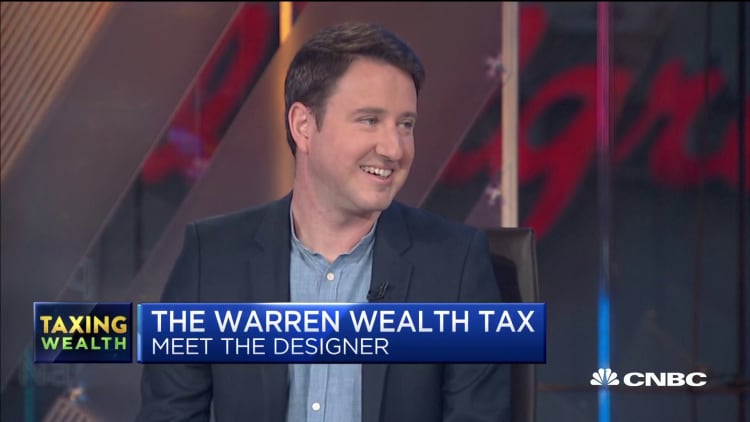A new analysis of 2020 Democratic candidates' tax plans reveals a stark difference in how much presidential hopefuls, particularly Sens. Elizabeth Warren, D-Mass., and Bernie Sanders, I-Vt., want to go after billionaires.
In determining the effective tax rate each income group pays, economists Gabriel Zucman and Emmanuel Saez take into account all available information that 2020 front-runners, including former Vice President Joe Biden, have said on the campaign trail and on their respective websites. Sanders, according to the economists' analysis, would tax the income of the wealthiest 400 in America at nearly 100%.
The candidates' plans vary widely, and so the economists also treat private health insurance premiums as a tax on households. The analysis also assumes different rates of tax evasion and avoidance, according to their methodology.
Zucman and Saez serve as policy advisors for both the Warren and Sanders campaigns.
The chart illustrates why some on Wall Street have sounded the alarm on the possibility of Warren or Sanders becoming president instead of Biden, who is known to be more moderate and business-friendly.
The economists have their critics, too. For instance, former Treasury Secretary Larry Summers and Natasha Sarin, assistant professor at the University of Pennsylvania, view Zucman and Saez's estimates as overly optimistic. Their critics are also skeptical of how effectively the government can enforce a wealth tax.
The main reason for such a large difference between Biden's plan and the plans of Warren and Sanders, who calls himself a democratic socialist, has to do with proposed wealth taxes, Zucman said in an email.
Biden has not put out a formal tax plan yet, whereas Sanders' proposed wealth tax, for example, has a tax rate up to 8% for wealth above $10 billion. Warren, meanwhile, proposes a 2% annual tax on net worth between $50 million and $1 billion, with an additional 1% levied on net worth above $1 billion.


